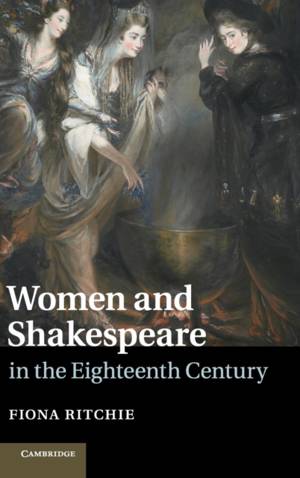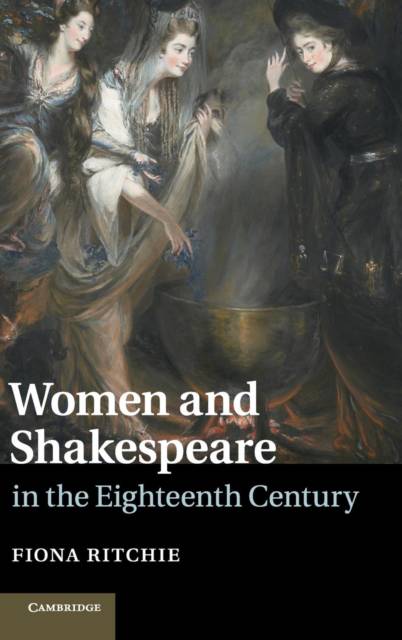
- Afhalen na 1 uur in een winkel met voorraad
- Gratis thuislevering in België vanaf € 30
- Ruim aanbod met 7 miljoen producten
- Afhalen na 1 uur in een winkel met voorraad
- Gratis thuislevering in België vanaf € 30
- Ruim aanbod met 7 miljoen producten
Zoeken
€ 178,95
+ 357 punten
Uitvoering
Omschrijving
Fiona Ritchie analyses the significant role played by women in the construction of Shakespeare's reputation which took place in the eighteenth century. The period's perception of Shakespeare as unlearned allowed many women to identify with him and in doing so they seized an opportunity to enter public life by writing about and performing his works. Actresses (such as Hannah Pritchard, Kitty Clive, Susannah Cibber, Dorothy Jordan and Sarah Siddons), female playgoers (including the Shakespeare Ladies Club) and women critics (like Charlotte Lennox, Elizabeth Montagu, Elizabeth Griffith and Elizabeth Inchbald), had a profound effect on Shakespeare's reception. Interdisciplinary in approach and employing a broad range of sources, this book's analysis of criticism, performance and audience response shows that in constructing Shakespeare's significance for themselves and for society, women were instrumental in the establishment of Shakespeare at the forefront of English literature, theatre, culture and society in the eighteenth century and beyond.
Specificaties
Betrokkenen
- Auteur(s):
- Uitgeverij:
Inhoud
- Aantal bladzijden:
- 268
- Taal:
- Engels
Eigenschappen
- Productcode (EAN):
- 9781107046306
- Verschijningsdatum:
- 2/06/2014
- Uitvoering:
- Hardcover
- Formaat:
- Genaaid
- Afmetingen:
- 155 mm x 231 mm
- Gewicht:
- 498 g

Alleen bij Standaard Boekhandel
+ 357 punten op je klantenkaart van Standaard Boekhandel
Beoordelingen
We publiceren alleen reviews die voldoen aan de voorwaarden voor reviews. Bekijk onze voorwaarden voor reviews.











